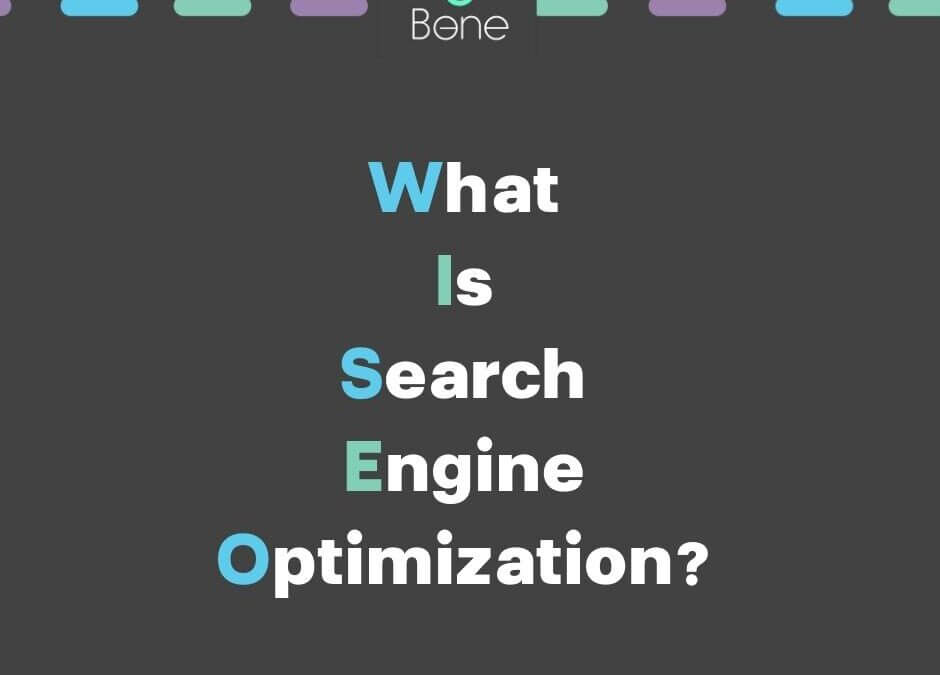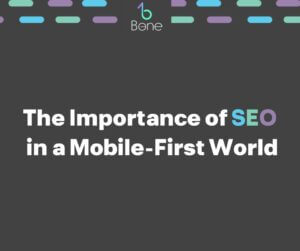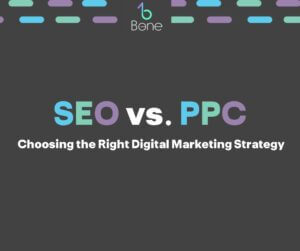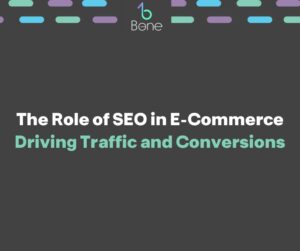Search Engine Optimization (SEO) refers to the practice of optimizing a website or web page to improve its visibility and ranking in search engine results pages (SERPs). The goal of SEO is to increase organic (non-paid) traffic to a website by making it more attractive and relevant to search engines.
Search engines like Google, Bing, and Yahoo use complex algorithms to determine the ranking of websites in their search results. SEO involves various techniques and strategies to align a website with these algorithms and improve its chances of ranking higher.
Know More About SEO services in Egypt
Here are some key components of SEO:
- Keyword Research: Identifying the keywords and phrases that potential visitors might use when searching for relevant information or products.
- On-Page Optimization: Optimizing website elements such as meta tags, headings, content, URLs, and internal linking structure to make them more search engine-friendly and relevant to the targeted keywords.
- Off-Page Optimization: Building high-quality backlinks from other reputable websites to improve the website’s authority and credibility.
- Technical SEO: Ensuring that the website has proper indexing, site structure, mobile-friendliness, fast loading speed, and no technical issues that could hinder search engine crawling and indexing.
- Content Creation: Developing high-quality, informative, and engaging content that satisfies the users’ search intent and provides value. This includes optimizing content for targeted keywords.
- User Experience: Enhancing the overall user experience on the website, including ease of navigation, clear site architecture, and fast-loading pages.
- Local SEO (for location-based businesses): Optimizing a website to appear in local search results, including local directories, Google My Business, and other location-specific factors.
SEO is an ongoing process as search engine algorithms evolve, and competitors continually optimize their websites. It requires a combination of technical expertise, analytical skills, and continuous monitoring and adaptation to achieve sustainable results. SEO services in Egypt
Certainly! Here’s the complete response on search engine optimization:
Search Engine Optimization (SEO) is the practice of optimizing a website or web page to improve its visibility and ranking in search engine results pages (SERPs). The primary objective of SEO is to increase organic (non-paid) traffic to a website by making it more appealing and relevant to search engines.
Search engines like Google, Bing, and Yahoo employ complex algorithms to determine the ranking of websites in their search results. SEO involves employing various techniques and strategies to align a website with these algorithms and enhance its chances of achieving a higher ranking.
The key components of SEO include:
- Keyword Research: This involves identifying the keywords and phrases that potential visitors might use when searching for relevant information or products. Keyword research helps in understanding user intent and tailoring the website’s content accordingly.
- On-Page Optimization: On-page optimization focuses on optimizing various elements within a website to make them more search engine-friendly. This includes optimizing meta tags, headings, content, URLs, and internal linking structure to improve relevance and visibility for targeted keywords.
- Off-Page Optimization: Off-page optimization involves activities performed outside the website to enhance its online reputation and authority. The primary focus is on building high-quality backlinks from other reputable websites, which indicates to search engines that the website is trustworthy and valuable. SEO services in abu Dhabi
- Technical SEO: Technical SEO ensures that the website has proper indexing, site structure, and functionality, enabling search engine crawlers to access and understand its content. It involves optimizing elements such as XML sitemaps, robots.txt, canonical tags, site speed, and mobile-friendliness, and resolving any technical issues that may hinder search engine crawling and indexing.
- Content Creation: Creating high-quality, informative, and engaging content is crucial for SEO. Content should be optimized for targeted keywords and aligned with user intent. Producing valuable and shareable content not only improves the website’s visibility but also encourages natural backlinks and social media mentions. SEO Services in Egypt
- User Experience: User experience plays a significant role in SEO. A website should provide a seamless and positive experience to its visitors, with easy navigation, clear site architecture, fast-loading pages, and mobile responsiveness. Search engines consider user experience signals, such as bounce rate and time on site, when determining the quality and relevance of a website.
- Local SEO (for location-based businesses): Local SEO focuses on optimizing a website to appear in local search results. This includes optimizing the website for location-specific keywords, creating and optimizing a Google My Business profile, obtaining positive reviews, and ensuring consistency in NAP (Name, Address, Phone) information across various platforms. SEO Agency in Egypt
SEO is an ongoing and dynamic process. Search engine algorithms evolve constantly, and competitors are continuously optimizing their websites. SEO requires a combination of technical expertise, analytical skills, and continuous monitoring and adaptation to achieve sustainable results.
It’s worth noting that SEO is just one aspect of a comprehensive digital marketing strategy. While it can significantly improve organic visibility and traffic, it’s often complemented by other channels such as paid advertising, social media marketing, and content marketing to maximize overall online presence and reach.
What is search engine optimization?
Certainly! Here’s the complete response on search engine optimization:
Search Engine Optimization (SEO) is the process of optimizing a website to improve its visibility and ranking in search engine results. The goal is to increase organic (non-paid) traffic from search engines, primarily Google, by making the website more relevant, trustworthy, and authoritative.
SEO involves various techniques and strategies to optimize different aspects of a website. Here are the key components of SEO:
- Keyword Research: It starts with identifying the keywords and phrases that users are searching for related to the website’s content or business. Keyword research helps understand user intent and enables the optimization of website content to target relevant keywords.
- On-Page Optimization: This includes optimizing the elements on individual web pages to make them more search engine-friendly. It involves optimizing meta tags, headings, URLs, and incorporating keywords naturally within the content. On-page optimization also focuses on improving user experience by ensuring easy navigation, fast loading speed, and mobile responsiveness.
- Off-Page Optimization: Off-page optimization involves activities performed outside the website to enhance its online reputation and authority. The primary focus is on building high-quality backlinks from other reputable websites. Backlinks act as votes of confidence for search engines, indicating that the website is valuable and trustworthy.
- Technical SEO: Technical SEO focuses on optimizing the technical aspects of a website to ensure that search engines can crawl, index, and understand its content. It includes optimizing site structure, XML sitemaps, robots.txt, and canonical tags, and ensuring proper website speed and mobile-friendliness.
- Content Creation and Optimization: Creating high-quality, relevant, and valuable content is crucial for SEO. It involves producing informative articles, blog posts, videos, or other types of content that align with user intent and target keywords. Content optimization includes using relevant keywords, providing engaging and shareable content, and structuring it properly with headings and subheadings.
- User Experience and Engagement: User experience plays a significant role in SEO. Websites that provide a positive experience with easy navigation, intuitive design, and fast loading speed tend to rank higher. Engaging users through interactive elements, clear calls-to-action, and relevant internal linking can improve user experience and increase time spent on the website.
- Local SEO (for location-based businesses): Local SEO focuses on optimizing a website to appear in location-specific search results. It includes optimizing Google My Business listings, and local directories, and incorporating location-specific keywords. Online reviews and ratings also play a role in local SEO.
SEO is an ongoing process that requires monitoring, analysis, and continuous optimization. Search engine algorithms change frequently, and staying up to date with industry trends and best practices is essential. SEO professionals or digital marketing agencies often implement SEO strategies for businesses to help them improve their online visibility and drive more organic traffic. seo company in egypt
It’s important to note that SEO is just one part of a comprehensive digital marketing strategy. Combining SEO with other tactics such as paid advertising, social media marketing, and content marketing can amplify the overall online presence and drive better results.
Certainly! Here’s the complete response on search engine optimization:
Search Engine Optimization (SEO) is the process of optimizing a website to increase its visibility and improve its organic (non-paid) ranking in search engine results pages (SERPs). The objective of SEO is to attract more targeted traffic from search engines by making the website more relevant, authoritative, and user-friendly. seo companies in egypt
SEO encompasses a range of strategies and techniques that work together to improve a website’s search engine visibility. Here are the key components of SEO:
- Keyword Research: SEO starts with keyword research, which involves identifying the specific words and phrases that people use when searching for information related to your website. By understanding the search intent behind these keywords, you can create content that matches what users are looking for.
- On-Page Optimization: On-page optimization involves optimizing various elements within your web pages to make them more search engine-friendly. This includes optimizing meta tags (title tags and meta descriptions), headings, URLs, and incorporating relevant keywords naturally into the content. On-page optimization also focuses on improving user experience by ensuring easy navigation, fast loading speed, and mobile responsiveness.
- Off-Page Optimization: Off-page optimization refers to activities that take place outside of your website but have an impact on its search engine rankings. The primary focus of off-page optimization is building high-quality backlinks from other reputable websites. Backlinks serve as endorsements or votes of confidence for search engines, indicating that your website is valuable and trustworthy.
- Technical SEO: Technical SEO involves optimizing the technical aspects of your website to ensure search engines can crawl, index, and understand your content. This includes optimizing site structure, XML sitemaps, robots.txt files, canonical tags, and resolving any technical issues that may hinder search engine crawling and indexing. Technical SEO also focuses on improving website speed, mobile-friendliness, and overall user experience.
- Content Creation and Optimization: Content is a critical component of SEO. Creating high-quality, relevant, and engaging content helps attract and retain visitors. Optimizing your content involves incorporating targeted keywords naturally, providing valuable information, and structuring it properly with headings and subheadings. Content optimization also includes using multimedia elements like images and videos, making it shareable, and promoting user engagement.
- User Experience and Engagement: User experience plays a significant role in SEO. Search engines aim to provide the best possible results to their users, so they consider factors such as website speed, mobile-friendliness, ease of navigation, and user engagement metrics (such as bounce rate and time on site). By delivering a positive user experience, you can improve your website’s search engine rankings.
- Local SEO (for location-based businesses): Local SEO focuses on optimizing a website to appear in location-specific search results. It involves optimizing Google My Business listings, and local directories, and incorporating location-specific keywords. Online reviews and ratings also play a crucial role in local SEO.
SEO is an ongoing process that requires continuous monitoring, analysis, and optimization. Search engine algorithms are constantly evolving, and staying up to date with the latest best practices is essential. Many businesses rely on SEO professionals or digital marketing agencies to implement effective SEO strategies and improve their online visibility.
It’s important to note that SEO is just one aspect of a comprehensive digital marketing strategy. Combining SEO with other tactics such as paid advertising, social media marketing, and content marketing can maximize your online presence and help you achieve better results.
Certainly! Here’s the complete response on search engine optimization:
Search Engine Optimization (SEO) is the practice of optimizing a website to increase its visibility and improve its organic (non-paid) ranking in search engine results pages (SERPs). The main objective of SEO is to attract more targeted traffic from search engines by making the website more relevant, authoritative, and user-friendly.
SEO encompasses a range of strategies and techniques that work together to improve a website’s search engine visibility. Here are the key components of SEO:
- Keyword Research: Keyword research is the foundation of SEO. It involves identifying the specific words and phrases that people use when searching for information related to your website. By understanding the search intent behind these keywords, you can create content that matches what users are looking for.
- On-Page Optimization: On-page optimization focuses on optimizing various elements within your web pages to make them more search engine-friendly. This includes optimizing meta tags (title tags and meta descriptions), headings, URLs, and incorporating relevant keywords naturally into the content. On-page optimization also aims to enhance user experience through easy navigation, fast loading speed, and mobile responsiveness.
- Off-Page Optimization: Off-page optimization refers to activities conducted outside of your website to improve its search engine rankings. The primary focus is on building high-quality backlinks from other reputable websites. Backlinks serve as endorsements or votes of confidence for search engines, indicating that your website is valuable and trustworthy.
- Technical SEO: Technical SEO involves optimizing the technical aspects of your website to ensure search engines can crawl, index, and understand your content effectively. This includes optimizing site structure, XML sitemaps, robots.txt files, canonical tags, and resolving any technical issues that may hinder search engine crawling and indexing. Technical SEO also focuses on improving website speed, mobile-friendliness, and overall user experience.
- Content Creation and Optimization: Content is a crucial aspect of SEO. Creating high-quality, relevant, and engaging content helps attract and retain visitors. Content optimization involves incorporating targeted keywords naturally, providing valuable information, and structuring it properly with headings and subheadings. Content optimization also includes using multimedia elements like images and videos, making it shareable, and encouraging user engagement.
- User Experience and Engagement: User experience plays a vital role in SEO. Search engines prioritize websites that offer a positive user experience. Factors such as website speed, mobile-friendliness, ease of navigation, and user engagement metrics (e.g., bounce rate and time on site) are taken into account. By delivering a seamless and engaging user experience, you can improve your website’s search engine rankings.
- Local SEO (for location-based businesses): Local SEO focuses on optimizing a website to appear in location-specific search results. It involves optimizing Google My Business listings, and local directories, and incorporating location-specific keywords. Online reviews and ratings also play a significant role in local SEO.
SEO is an ongoing and iterative process that requires continuous monitoring, analysis, and optimization. Search engine algorithms constantly evolve, and staying up to date with the latest best practices is crucial. Many businesses rely on SEO professionals or digital marketing agencies to implement effective SEO strategies and improve their online visibility.
It’s important to note that SEO is just one aspect of a comprehensive digital marketing strategy. Combining SEO with other tactics such as paid advertising, social media marketing, and content marketing can maximize your online presence and help you achieve better results.







